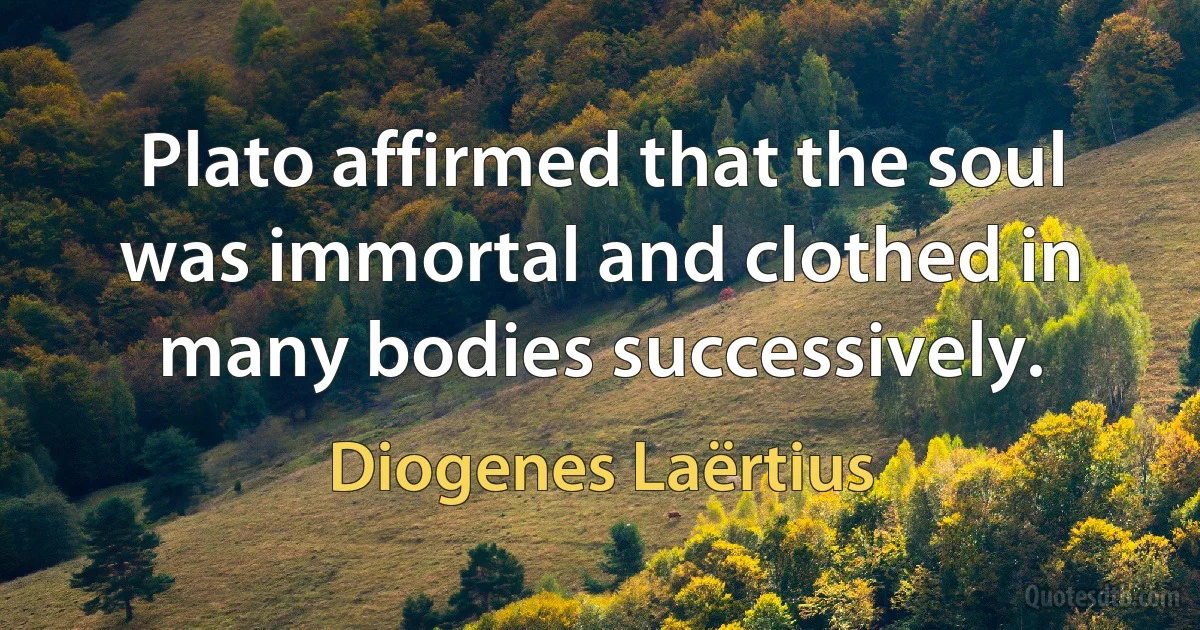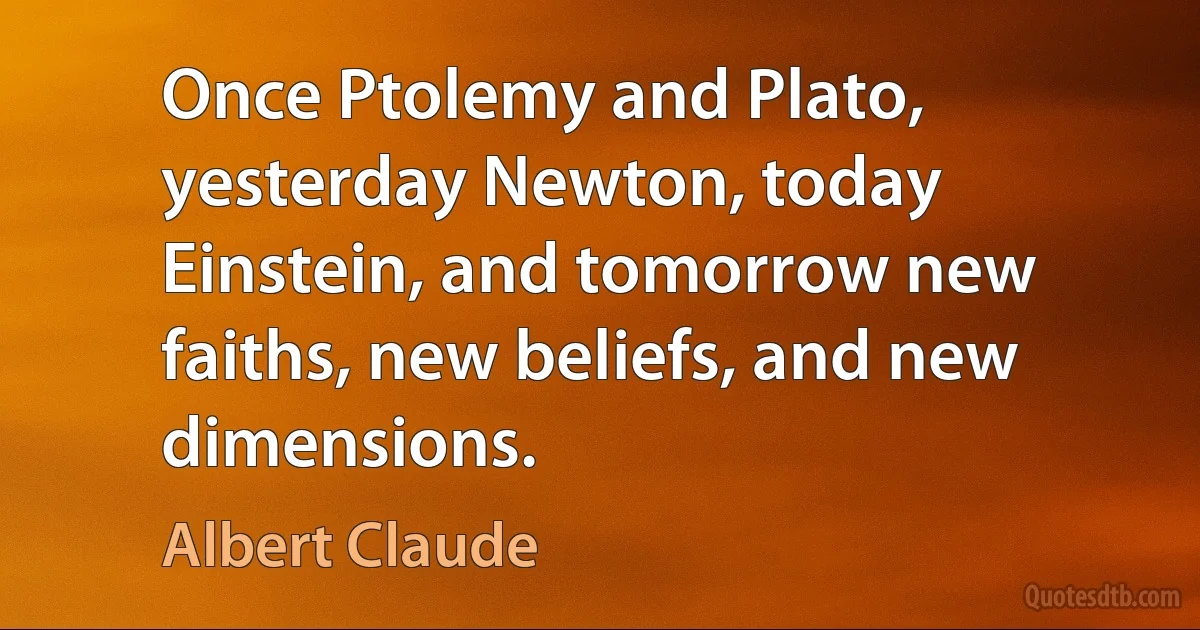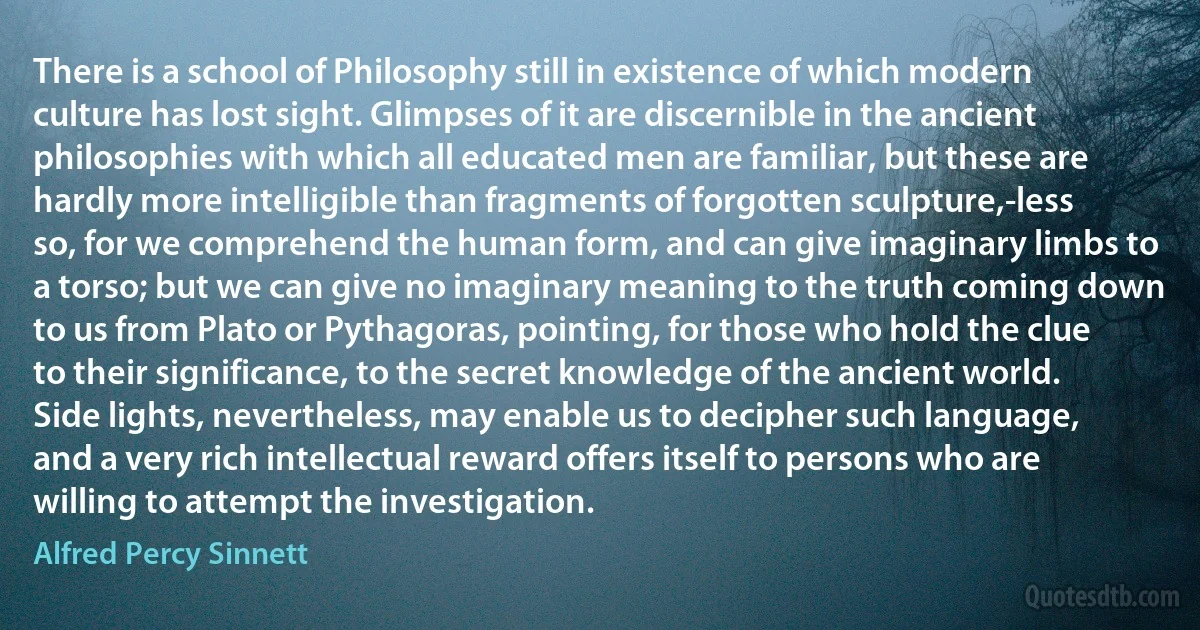Plato Quotes - page 2
The neo-conservative critics of leftist critics of mass culture ridicule the protest against Bach as background music in the kitchen, against Plato and Hegel, Shelley and Baudelaire, Marx and Freud in the drugstore. Instead, they insist on recognition of the fact that the classics have left the mausoleum and come to life again, that people are just so much more educated. True, but coming to life as classics, they come to life as other than themselves; they are deprived of their antagonistic force, of the estrangement which was the very dimension of their truth.

Herbert Marcuse
Modern man, seeking a middle position in the evaluation of sense impression and thought, can, following Plato, interpret the process of understanding nature as a correspondence, that is, a coming into congruence of pre-existing images of the human psyche with external objects and their behaviour. Modern man, of course, unlike Plato, looks on the pre-existent original images also as not invariable, but as relative to the development of a conscious point of view, so that the word "dialectic" which Plato is fond of using may be applied to the process of development of human knowledge.

Wolfgang Pauli
Walking is magic. Can't recommend it highly enough. I read that Plato and Aristotle did much of their brilliant thinking together while ambulating. The movement, the meditation, the health of the blood pumping, and the rhythm of footsteps... this is a primal way to connect with one's deeper self.

Paula Cole
The Christian priesthood, finding the doctrines of Christ levelled to every understanding, and too plain to need explanation, saw in the mysticism of Plato, materials with which they might build up an artificial system, which might, from its indistinctness, admit everlasting controversy, give employment for their order, and introduce it to profit, power and pre-eminence. The doctrines which flowed from the lips of Jesus himself are within the comprehension of a child; but thousands of volumes have not yet explained the Platonisms engrafted on them; and for this obvious reason, that nonsense can never be explained.

Thomas Jefferson
This morning the music of a brass band which had stopped under my windows moved me almost to tears. It exercised an indefinable, nostalgic power over me; it set me dreaming of another world, of infinite passion and supreme happiness. Such impressions are the echoes of Paradise in the soul; memories of ideal spheres whose sad sweetness ravishes and intoxicates the heart. O Plato! O Pythagoras! ages ago you heard these harmonies, surprised these moments of inward ecstasy, - knew these divine transports! If music thus carries us to heaven, it is because music is harmony, harmony is perfection, perfection is our dream, and our dream is heaven.

Henri-Frédéric Amiel
The question is then how can we decide what anybody in the ancient world said. We can't. We wish we could. It would be nice if we could. You would like to think that because you can go to the store and buy an edition of Plato that you are actually reading Plato, but the problem is that we just do not have the kind of evidence that we need in order to establish what ancient authors actually wrote.

Bart D. Ehrman
We can imagine that the Academy, which could be attended only by men of leisure, was a cradle of discontent. The author of the Laws was a disgruntled old man, full of political rancor, fearing and hating the crowd and above all their demagogues; his prejudices had crystallized and he had become an old doctrinaire, unable to see anything but the reflections of his own personality and to hear anything but the echoes of his own thoughts. The worst of it was that he, a noble Athenian, admired the very Spartans who had defeated and humiliated his fatherland. Plato was witnessing a social revolution (even as we are) and he could not bear it at all. His main concern was: how could one stop it.

George Sarton
For with what eyes of the mind was your Plato able to see that workhouse of such stupendous toil, in which he makes the world to be modelled and built by God? What materials, what bars, what machines, what servants, were employed in so vast a work? How could the air, fire, water, and earth, pay obedience and submit to the will of the architect? From whence arose those five forms, of which the rest were composed, so aptly contributing to frame the mind and produce the senses? It is tedious to go through all, as they are of such a sort that they look more like things to be desired than to be discovered.

Cicero
The Philosopher of this age is not a Socrates, a Plato, a Hooker, or Taylor, who inculcates on men the necessity and infinite worth of moral goodness, the great truth that our happiness depends on the mind which is within us, and not on the circumstances which are without us; but a Smith, a De Lolme, a Bentham, who chiefly inculcates the reverse of this,-that our happiness depends entirely on external circumstances; nay, that the strength and dignity of the mind within us is itself the creature and consequence of these. Were the laws, the government, in good order, all were well with us; the rest would care for itself! Dissentients from this opinion, expressed or implied, are now rarely to be met with; widely and angrily as men differ in its application, the principle is admitted by all.

Thomas Carlyle



